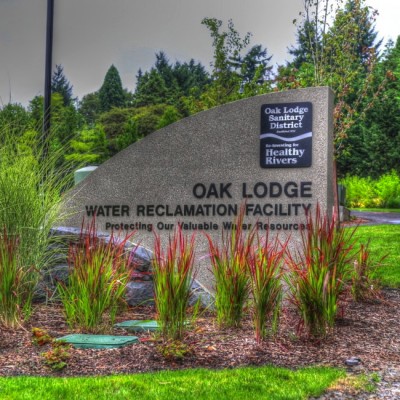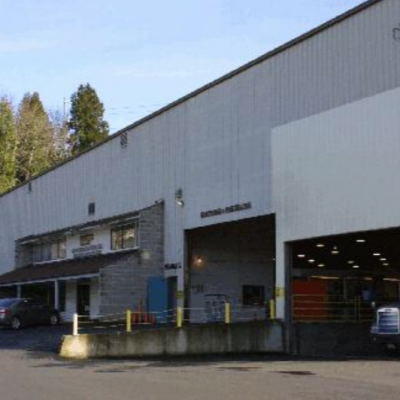Why Oregon Doesn’t Have More Forests Sold for Carbon Credits
Friday, May 15, 2015

This spring, Chevrolet purchased and retired carbon credits from a 980-acre project at Moss Creek near coastal Garbaldi, Ore., through its Carbon Reduction Initiative—one of the first forests in Oregon to do so. Another project, just up the coast in Astoria is still being explored, though seems viable for the city to sell carbon from the Bear Creek watershed rather than harvest timber.
In a carbon market, entities can purchase carbon credits to reward activities that reduce greenhouse gas emissions. To earn credits, landowners must demonstrate that certain investments would not have been made under a “business as usual” scenario. Certifying agencies (there are a handful) then issue credits based on the tons of greenhouse gas emissions that would be removed from the atmosphere.
So far, California’s cap-and-trade program is the nation’s most aggressive mandatory program aiming to reduce emissions of the worst offenders, but companies are also voluntarily buying carbon credits—either to offset their own emissions or simply out of environmental values.
The Moss Creek project, which is managed by Ecotrust Forest Management, will generate 150,000 tons of carbon reductions over its lifetime and will contribute to Chevrolet’s 2010 goal of purchasing eight million tons of carbon emission reductions that support projects across the U.S. Setting aside a $40 million budget for the task, it is the biggest commitment ever made by a company.
The Moss Creek project was added in the final stretches of the company’s initiative, which should be finished by the end of the summer.
Pat Nye, who manages the Chevrolet portfolio for the Bonneville Environmental Foundation, said that in searching for projects to fill the portfolio, the company was looking for projects that offer more than just carbon reduction but also other ecological benefits.
This is the case with the Moss Creek project, which also will help improve drinking water for the coastal city of Garibaldi, which draws its water from the Moss Creek watershed. The area is also habitat for the Coho salmon and could also be home to the endangered marbled murrelet, a type of native seabird.

A landowner could do both—there are a few projects in Oregon, which use improved forest management to continue harvest timber while meeting standards for a carbon project—but it decreases the level of harvest significantly, said McKee.
Many of the Oregon landowners interested in doing a carbon project are too small to gain enough revenue from the low price of carbon, he said. As a result, unless a company is willing to pay more, landowners would prefer to sell timber.
And there are cheaper carbon projects available, so companies have been more likely to buy them instead, said Pat Nye, a senior consultant for the Bonneville Environmental Foundation. Carbon projects reward a range of activities from forestry to diary digesters, wind energy, energy efficient building, mine capture and more.
In the case of Chevrolet, since the company was nearing the end phases of its initiative, it decided to add some forestry projects in the portfolio. “We had been successful in staying under budget with some other projects,” he said. “So, we looked around.”

Nye said he’s not allowed to share pricing for the project but said, “It was a pretty high premium—definitely not the cheapest.”
Oregon’s forestry carbon market contrasts sharply with California, which has seen a lot of them in part because forestry projects have been the most popular in California’s Compliance Offset Program, a part of the cap-and-trade program.
McKee said that one reason for the popularity of California forests is a cultural difference: “California has long history of conservation; Oregon has a long history working as a timber industry. It’s what people are used to,” he said.
But also, redwood forests are very productive, meaning they’ll have more carbon in them to increase value.
Additionally, the timber industry has historically been more productive in Oregon. “The California practice restricts timber management activities to a greater extent than Oregon,” said McKee, so landowners may not get as much value out of harvesting timber as they do in Oregon.
“Forest carbon is only one of the tools that we use in capturing value from our forests,” said Amrita VK Vastsal, director of Ecotrust Forest Management, a for-profit entity separate from Ecotrust. “We have not until now found the right opportunity and price point for which it made sense for us to develop a (carbon) project.”
While forestry project have remained rare in Oregon, though other carbon projects sell quickly. Purchasing carbon credits is actually quite popular in the Northwest compared to other states, said Nye, making it somewhat difficult to find local projects even though it shouldn’t really matter where in the world the offsets are purchased when it comes to mitigating the effects of global warming.
That said, many of the projects sold in the carbon market in Oregon support other ways of greenhouse gas capture, such as landfill or livestock projects.
“I'd say the entire carbon market, including forestry, is still fairly young and I expect growth will occur as more government bodies adopt greenhouse gas reduction goals and enact compliance programs (such as in California),” said Nye. “I think there are definitely more forestry projects in the Northwest.”
Ecotrust hoped that the inclusion of Moss Creek in Chevrolet’s portfolio would inspire more buyers to look at forestry projects. “We think they’re very marketable and desirable,” said Amrita VK Vastsal, director of EFM. “They’re very charismatic in that forests are tangible things you can see, visit and hike through. You can actually see the carbon being stored in their biomass, in the trunks. They provide clean water, habitat, logs and timber to support local wood product industries. They make for a really rich story.”
Exploring Garibaldi:
Exploring Garibaldi from Sam Beebe on Vimeo.






































Follow us on Pinterest Google + Facebook Twitter See It Read It